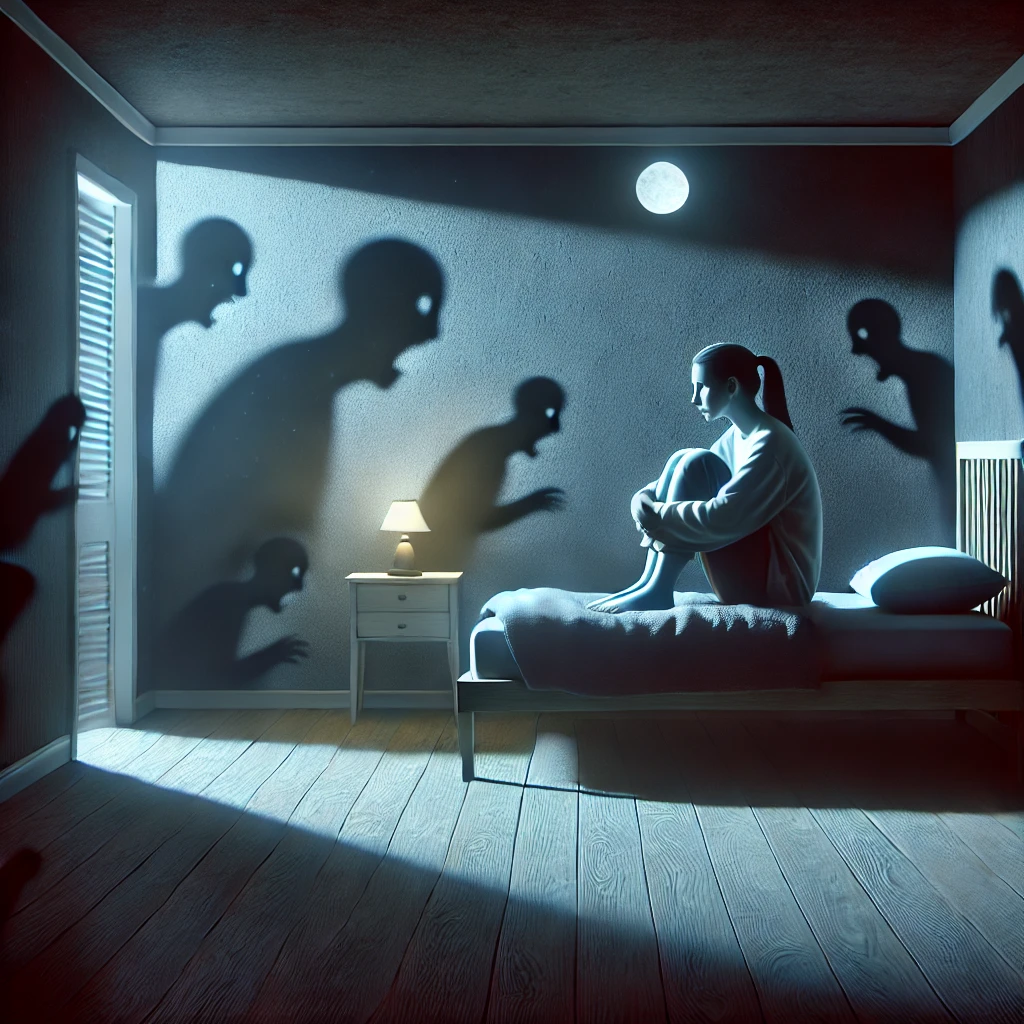
Understanding Nighttime Anxiety in ADHD Women: Why the Sun Going Down Can Feel Overwhelming
ADHD and Nighttime Anxiety: Why Your Brain Won’t Turn Off
Do you feel wide awake the moment your head hits the pillow? Racing thoughts, worries, or replaying the day’s mistakes? For many ADHD women, nighttime is when anxiety shows up the loudest.
It’s not you being “bad at sleeping” — it’s the ADHD brain’s wiring, combined with stress, sensory overload, and a need for downtime.
Why ADHD Women Experience Nighttime Anxiety
- Delayed cortisol cycles: ADHD brains often get a “second wind” at night.
- Racing thoughts: hyperactive thinking ramps up when distractions fade.
- Masking exhaustion: the pressure to perform all day spills out at night.
- Hormonal shifts: PMS, perimenopause, and menopause can worsen nighttime restlessness.
- Sensory overload: noise, light, or even the feel of sheets can trigger irritation.
ADHD-Friendly Strategies for Nighttime Anxiety
1. Externalize Racing Thoughts
Keep a notebook or voice memo app by your bed. Offload worries and to-do’s so your brain can relax.
2. Body-Based Soothing
Try deep breathing, gentle stretching, or a weighted blanket. ADHD nervous systems calm faster with sensory input.
3. Reduce Stimulus Before Bed
Dim screens, lower lights, and switch to soothing music. Small shifts cue your nervous system that it’s safe to rest.
4. Don’t Fight the Clock
If you can’t sleep after 20 minutes, do a calm activity (reading, coloring) instead of forcing sleep — this reduces frustration.
5. Build Gentle Routines
Pair bedtime with enjoyable cues like tea, skincare, or journaling. This makes winding down feel like self-care, not punishment.
FAQs: ADHD and Nighttime Anxiety
Why can’t I turn my brain off at night with ADHD?
Because ADHD brains struggle with regulation — thoughts keep firing when external distractions are gone.
Is nighttime anxiety the same as revenge bedtime procrastination?
Not exactly. Procrastination is delaying sleep on purpose, while anxiety is being unable to rest due to racing thoughts. Many women experience both.
What helps ADHD nighttime anxiety?
Externalizing thoughts, sensory soothing, and flexible bedtime cues often help ADHD brains calm down.
Final Thoughts
If you spend nights battling anxiety instead of resting, you’re not broken — your brain just works differently. By using ADHD-friendly calming tools and compassionate routines, sleep can become less of a fight and more of a reset.
✨ For more strategies, explore ADHD and Sleep Solutions or join my newsletter for weekly ADHD support.
More Links
Living a Double Life with ADHD: Why Day and Night Can Feel Like Two Different Worlds for ADHD Women


